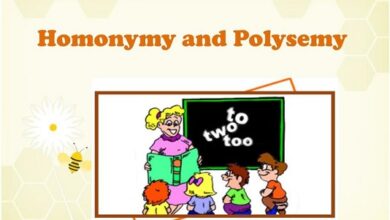Lexeme examples definition origin types
Lexeme
The lexeme is the essential part of a word, the fragment that gives it its meaning and makes it understandable to the speakers of a language. It is also known as a root, as it expresses the key meaning of a word. Lexeme examples
To complete the lexeme and generate various meanings from it, a morpheme must be added to it. The latter is the minimum unit of meaning that we can find in a language. This particle adds gender, number and other essential qualities to the root .
For example, the lexeme “gat” is added the morpheme “o” to obtain the masculine “cat . Many of the lexemes in Spanish have origins in ancient languages such as Greek and Latin. Also of Romance languages like French or Italian, to name a few. Next, the types of lexemes that we can find will be explained.
The origin of the lexemes
The lexemes that we have in the Castilian language, come as a general rule, from ancient languages such as Latin and Greek. As the years have passed, and as Spanish has evolved, the lexemes have become Castilianized and therefore, we have added suffixes and prefixes that allow us to have several options when creating words that may be related, or not, with the meaning of its root. Lexeme examples
The lexemes also have the greatest weight in the meaning of the word it forms so that it will always be quite easy to know how to identify them. Sometimes we are even going to find lexemes that can be considered words, since they have all the meaning in themselves.
Examples of lexemes
1. Bread- (baker, bakery)
2. Flower- (florist, vase, florist, flowery, flourish)
3. Camp- (peasant, country, field)
4. Libr- (book, bookstore, bookseller,
5.Cook- (kitchen, cook, cook)
6. Tree (free lexeme)
7.Histori – (history, historian)
8.Biblio- (library, bibliography, bibliographic, bibliographer)
9. Sea (free lexeme)
10 Sun (free lexeme)
Of Greek or Latin origin we also have the following lexemes:
11.Uni- (unilateral, unidirectional)
12.Psico- (psychologist, psychological, psychology)
13.Agr- (agriculture, wild, agricultural)
14. Arque- (archetype, archeology, archaeologist)
15. Auto- (automobile, autonomous, authority)
16. Demo- (democracy, democrat, demographic, demographic)
17. Equi- (equidistant, equitable) Lexeme definition types examples
18. Geo- (geology, geography, geographer)
19. Gynecology- (gynecology, gynecologist, gynecologist)
20. Paleo- (paleontology, paleontological, paleolithic)
Types of lexemes
1-Independent or free Lexemes
They are those that by themselves are words with meaning. It is not necessary to add any morpheme to them. But these lexemes also function as a root to form other groups of words.
Examples
– Tree: tree – ito, tree – es, tree – eda.
– Wall: wall – is, wall – on.
– Clock: clock – ero, clock – es, clock – ería.
– Blue: blue – is, blue – ado.
– Bread: bread – adería, bread – es, bread – dressing, bread – quote.
2-Dependent or locked Lexemes
These types of lexemes need a morpheme to have meaning and meaning. Likewise, these endings that are added give information that indicates aspects such as time, number, gender, person …
Example
– Gender: os -o (masculine), os – a (feminine).
– Quantity: pelot – a (singular), pelot -as (plural).
– Time: bail – or (present) bail – aré (future).
– Person: worked (first person) worked – in (third person).
3-Other lexemes
It is also possible to generate words by joining two lexemes. This is how compound words are formed. Each one has a particular meaning and gives meaning to the new word. Lexeme examples
Examples
– Cardio – vascular.
– Chainsaw.
– Short – circuit.
– Electro – cardiogram.
– Center – period.
– Grass – good.
Differences between morphemes and lexemes
As we have already commented at the beginning, it is worth clearly establishing what are the differences between morphemes and lexemes , so that we do not fall into error or confusion:
- The morpheme is the minimum unit in which a word is decomposed, both lexical and grammatical. When we speak of a lexical type, considered as a lexical morpheme, we can speak of a lexeme, but not at a grammatical level, since in this case it is considered a syntactic morpheme .
- The lexical morpheme is the lexeme, a minimum unit with a lexical value. For its part, it contains grammatical morphemes, which are considered grammes , which in turn contain only syntactic information.
- A lexeme will always be considered a morpheme, but the opposite is not always the case.


